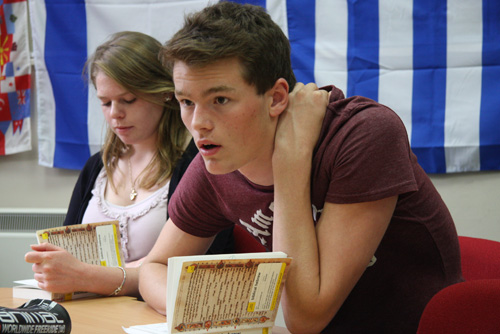
Developing the whole child has been the goal of many leading global educators. Those who are succeeding appear to have struck the balance among learning, Beurteilung, and helping students understand who they are, what they love, and what positive contributions they can make to their communities. DR. Anthony Seldon’s work is one of these success stories.
A pioneer of innovative teaching, Seldon is the head of one of the UK’s highest profile independent schools, Wellington College-, and continues to be at the forefront of British and international education debates. His views on education have regularly been sought by government and political parties. He is a passionate exponent of co-education, das International Baccalaureate, the teaching of happiness and well-being, and the development of the all-around child.
DR. Howard Gardner, globally respected author of Frames of Mind: The Theory of Multiple Intelligences, Kommentare: “Anthony Seldon is a provocative and thoughtful educator. Rather than clinging to received wisdom, he thinks originally about the virtues that are most needed in education today. He has been influenced by work in positive psychology (like that of Martin Seligman and Mihaly Csikszentmihalyi) as well as work in cognitive psychology. He also has stimulated me to think more about the spiritual dimensions of education. I consider Anthony a force for good in independent school education in Britain and elsewhere, including the US.”
Seldon joined Wellington College (a co-ed high school in the UK) im Januar, 2006. At a time that schools world-wide were grappling with questions related to how an education might evolve to match the 21st century and the aspirations of young people, their families and communities, Seldon established a unique curriculum. This included creating an all-around or holistic model of education which is called “Die acht Aptitudes” (inspired by Dr. Howard Gardner’s Theory of Multiple Intelligences). The aptitudes focus on the development of each child’s logical, linguistic, Sozial-, Kultur-, physikalisch, persönlich, geistig, and moral gifts. Each semester, students in the school are required to set goals for themselves in each of these eight aptitude areas. The college is also known for its commitment to teaching students well-being and happiness as part of the core curriculum. Significant focus is placed on leadership, community service, and internationalism. The curriculum offers the International Baccalaureate (almost one third of the students now sit this test instead of the A Levels) alongside A Levels and the GCSE (UK standardized tests).
DR. Anthony Seldon is author or editor of over 25 books on contemporary history, politics and education. His publications include Blair Unbound, Vertrauen: How We Lost It and How to Get It Back, An End to Factory Schools: An Education Manifesto 2010-2020, Politics of Optimism, und Brown at 10. His latest book, Glück (Lion Hudson), will be published in spring, 2012. He is also a governor of the Royal Shakespeare Company. DR. Seldon shares his answers to our big picture questions in this week’s Global Search for Education.
Was für ein Bildungssystem wird ein Land zu ermöglichen, die Menschen Fähigkeiten, um im globalen Wettbewerb haben?
Global success is not just about grunt and graft (British expression for hard work) — which is what the world’s factory schools and factory universities are excelling in. There will always be grunters and grafters, whatever the education system. So the education system that will optimize the prospects of success in the global world will be one that develops passion, releases creativity, and deeply challenges its young people. It will be the one that develops all their aptitudes and intelligences, not just a narrow range, as presently happens.
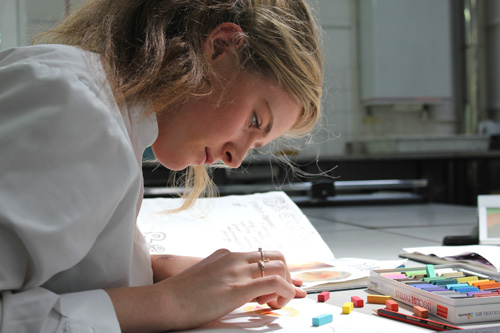
“Anthony Seldon is a provocative and thoughtful educator. Rather than clinging to received wisdom, he thinks originally…” — DR. Howard Gardner
What elements are missing from current national education systems and what kind of system do you believe works best?
The International Baccalaureate at Middle Years and Diploma level is not perfect, but it allows teachers to teach, students to think for themselves, and for the world in all its interconnectedness to be far more understood than most national systems. Wellington College-, in our Eight Aptitudes model, is we believe the most advanced model on offer in schools developing multiple intelligences. The students build their profiles term on term towards their final graduation certificate. Jedoch, not all the eight aptitudes can or should be assessed.
Does standardized testing properly measure the mental capabilities of all individuals?
I don’t think we should agonize overly about standardized testing. What we should be trying to do is to ensure that everything else that the school does encourages the qualities outlined in my first two responses.
Was glauben Sie, ist der beste Weg, um das Problem der Leistung Lücke zu schließen?
There are many reasons that explain the gulf between rich and poor in educational attainment across the world. Giving non-privileged children outstanding schools with the very highest expectations and standards of discipline is the best way to reduce the gap.
Was kann getan werden, um besser auf das emotionale Wohlbefinden und geistige Potential des Einzelnen, die erscheinen, unter dem derzeitigen System zu leiden?
Wellington College has developed a pioneering program in well-being (sehen http://www.wellingtoncollege.org.uk). Many governments in the world assume that there is a dichotomy between well-being and educational attainment. The truth is that the best schools offer emotional, physical and mental well-being and educational attainment. All schools need to take well-being very seriously and adopt a program such as the one we have on offer.
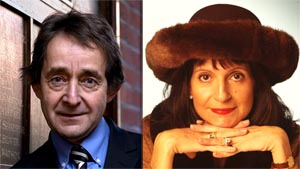

In Die globale Suche nach Bildung, beitreten C. M. Rubin und weltweit renommierten Vordenkern wie Sir Michael Barber (Vereinigtes Königreich), DR. Leon Botstein (US), DR. Linda Hammond-Liebling (US), DR. Madhav Chavan (Indien), Professor Michael Fullan (Kanada), Professor Howard Gardner (US), Professor Yvonne Hellman (Niederlande), Professor Kristin Helstad (Norwegen), Professor Rose Hipkins (Neuseeland), Professor Cornelia Hoogland (Kanada), Frau. Chantal Kaufmann (Belgien), Professor Dominique Lafontaine (Belgien), Professor Hugh Lauder (Vereinigtes Königreich), Professor Ben Levin (Kanada), Professor Barry McGaw (Australien), Professor R. Natarajan (Indien), Sridhar Rajagopalan (Indien), Sir Ken Robinson (Vereinigtes Königreich), Professor Pasi Sahlberg (Finnland), Andreas Schleicher (PISA, OECD), DR. Anthony Seldon, DR. David Shaffer (US), DR. Kirsten Sivesind (Norwegen), Kanzler Stephen Spahn (US), Yves Theze (Lycee Francais US), Professor Charles Ungerleider (Kanada), Professor Tony Wagner (US), Professor Dylan Wiliam (Vereinigtes Königreich), Professor Theo Wubbels (Niederlande), Professor Michael Young (Vereinigtes Königreich), und Professor Zhang Minxuan (China) wie sie das große Bild Bildung Fragen, die alle Nationen heute konfrontiert erkunden. Die Global Search for Education Community-Seite
C. M. Rubin ist der Autor von zwei weit Lese Online-Serie für den sie eine 2011 Upton Sinclair Auszeichnung, "Die Global Search for Education" und "Wie werden wir gelesen?"Sie ist auch der Autor von drei Bestseller Bücher, Inklusive The Real Alice im Wunderland.
Folgen Sie C. M. Rubin auf Twitter: www.twitter.com/@cmrubinworld

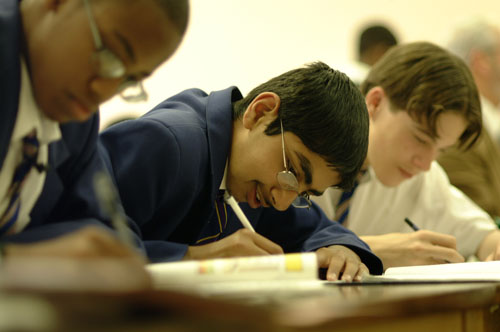
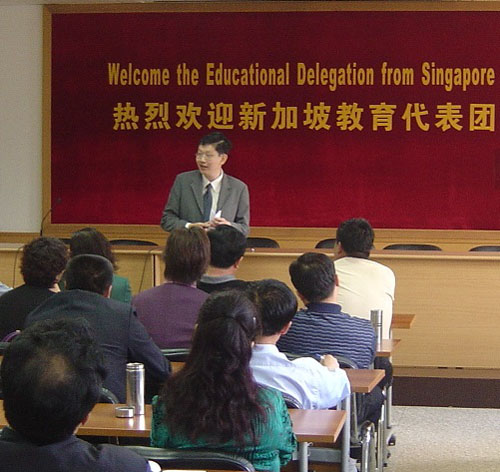
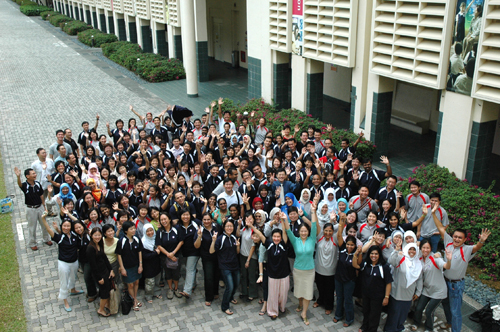
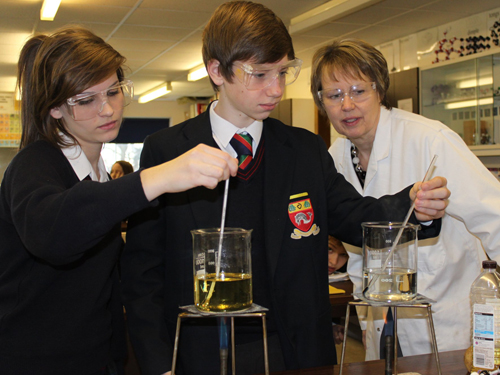
Jüngste Kommentare